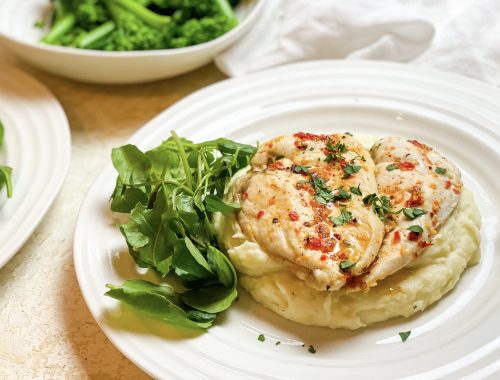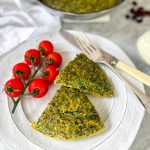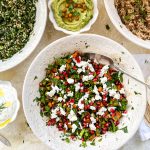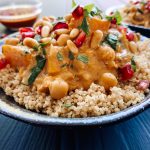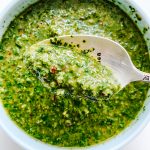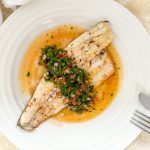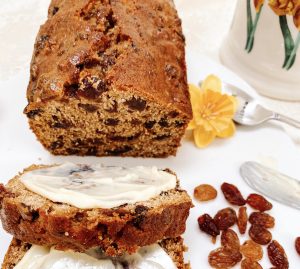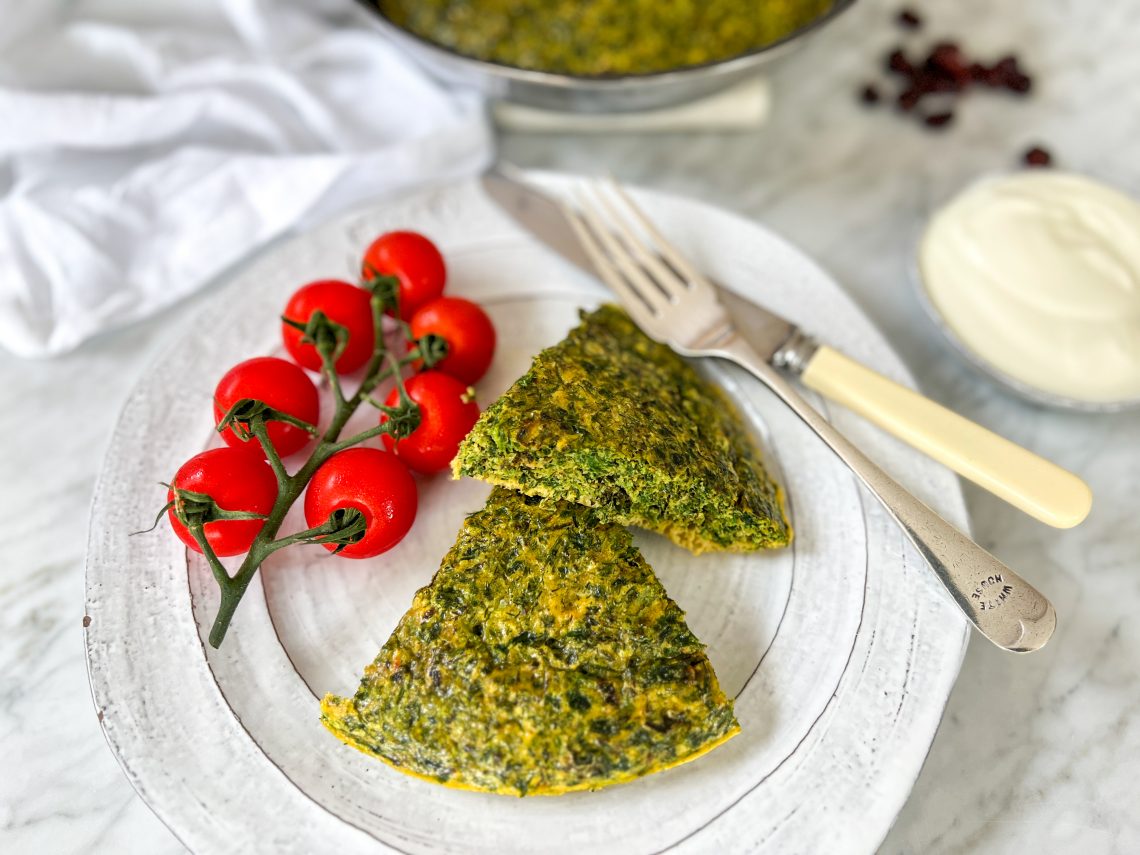
Kuku Sabzi – Persian Herbed Frittata
Kuku Sabzi, or Persian Herbed Frittata, is a lusciously light and healthy, oven-baked frittata stuffed full of a selection of fresh green herbs. This classic Persian dish is typically made to celebrate Nowruz, the Persian new year. Based on the spring equinox, it is celebrated today, 21st March, which marks the first day of the Gregorian calendar.
Recognised by a number of different ethnic groups around the globe, there are many customs at this time of year. Although they can vary significantly, they tend to involve fire and water, poetry reading, spending time with loved ones and other classic rituals such as traditional dancing and sharing gifts. Of course, food plays a large part in this celebration too and Kuku Sabzi is but one classic Persian dish associated with Nowruz.
Where is this recipe from?
Like most classic recipes, there are a plethora of versions out there. Eggs and fresh herbs, however, are consistent in all the ones I have seen. I found this Sabrina Ghayour recipe on the BBC Good Food website. Sabrina is a multi-award winning British and Iranian chef and food writer who specialises in Persian and Middle Eastern flavours. I regularly make Sabrina’s dishes and this, like her other creations, is simple to make and bursting with flavour. Please see here to read more about Sabrina.
What are barberries?
Dried barberries are a tart, dried fruit which are considered a superfood because of their health benefits. They are an excellent source of antioxidants and vitamin C and have been prescribed, over the centuries, to help deal with gut issues. Although often associated with this recipe, Sabrina suggests they are optional. You can either cook them in the kuku or, serve them alongside. If you cannot find any, you can use another tart dried fruit such as sour cherries, cranberries, chopped apricot or goji berries. Ottolenghi suggests adding a couple of teaspoons lime juice to replace barberries and add that classic sour flavour.
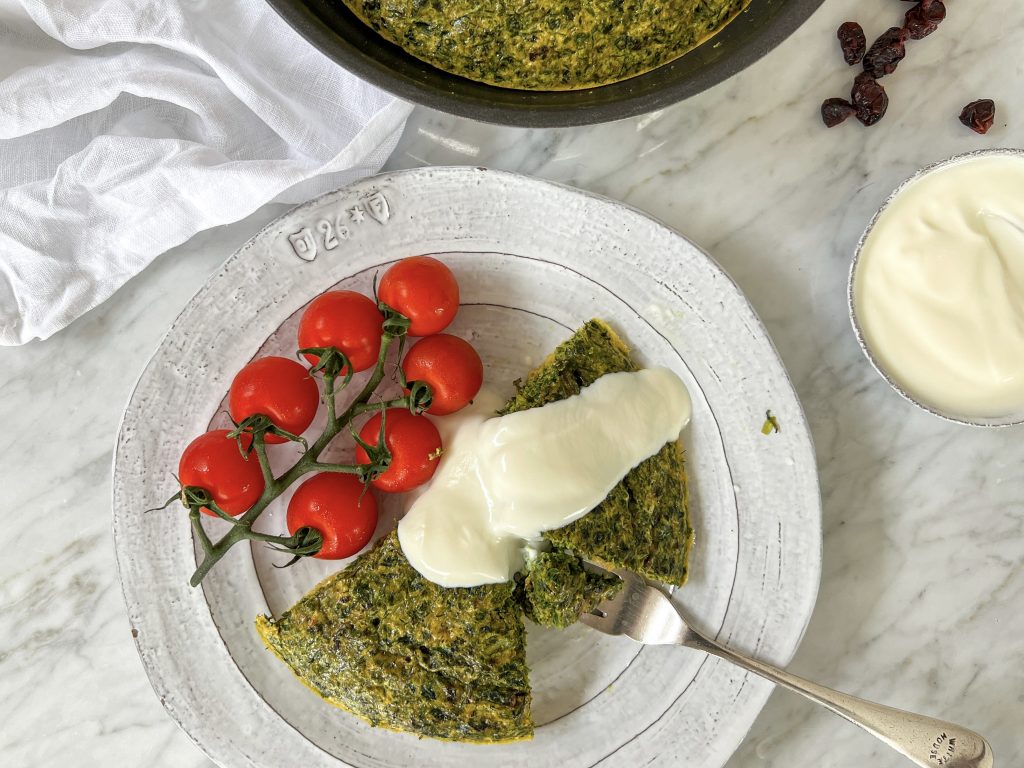
How to make Kuku Sabzi – Persian Herbed Frittata
Collect all the ingredients together:
- olive oil
- fresh dill, roughly chopped
- fresh chives, roughly sliced
- fresh coriander, roughly chopped
- fresh flat-leaf parsley, roughly chopped
- spring onions, trimmed and roughly sliced
- eggs
- natural yogurt
- baking powder
- ground turmeric
- fine salt
- freshly ground black pepper
- barberries (optional) or use another tart dried fruit such as sour cherries, cranberries, chopped apricot or goji berries. Ottolenghi suggests adding a couple of teaspoons lime juice
To serve:
- extra Greek/natural yoghurt
- tomatoes
- barberries
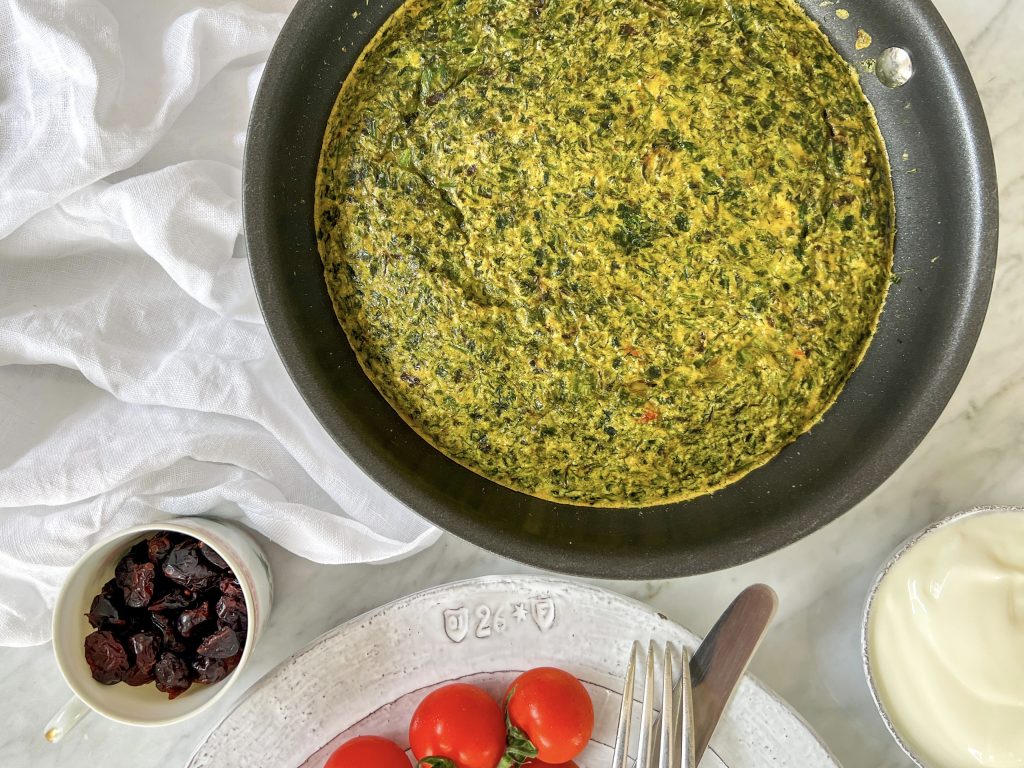
How to make this wonderful spring dish:
- Prepare the herbs and spring onions and tip them into a food processor. Pulse until finely chopped.
- Heat the oil in a 20cm/8 inch round oven-proof frying pan, over a moderate heat, and add the chopped herbs. Cook for around 10 minutes, stirring from time to time, until the herbs have darkened a little, have reduced in volume and are very lightly slightly caramelised.
- Whilst you cook the herbs, beat together the eggs with the yoghurt, baking powder, turmeric, salt and pepper. Sabrina warns against over-beating the eggs or the batter will be stiff.
- When the herbs are cooked, pour in the egg mixture. Mix well and place in a preheated oven for 15 – 20 minutes, or until cooked. It is cooked when the eggs have domed and feels soft, but firm, to the touch.
- Remove from the oven and leave to sit for 5 minutes. Slice and serve hot, warm or at room temperature with some Greek yoghurt on the side.
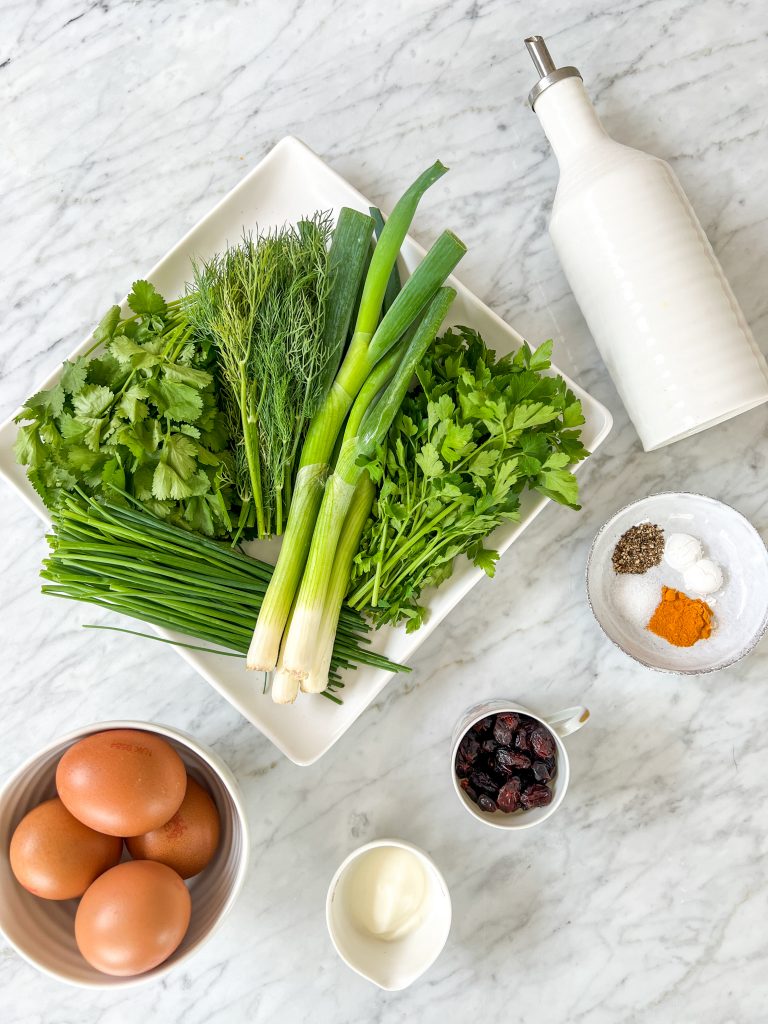
Ingredients 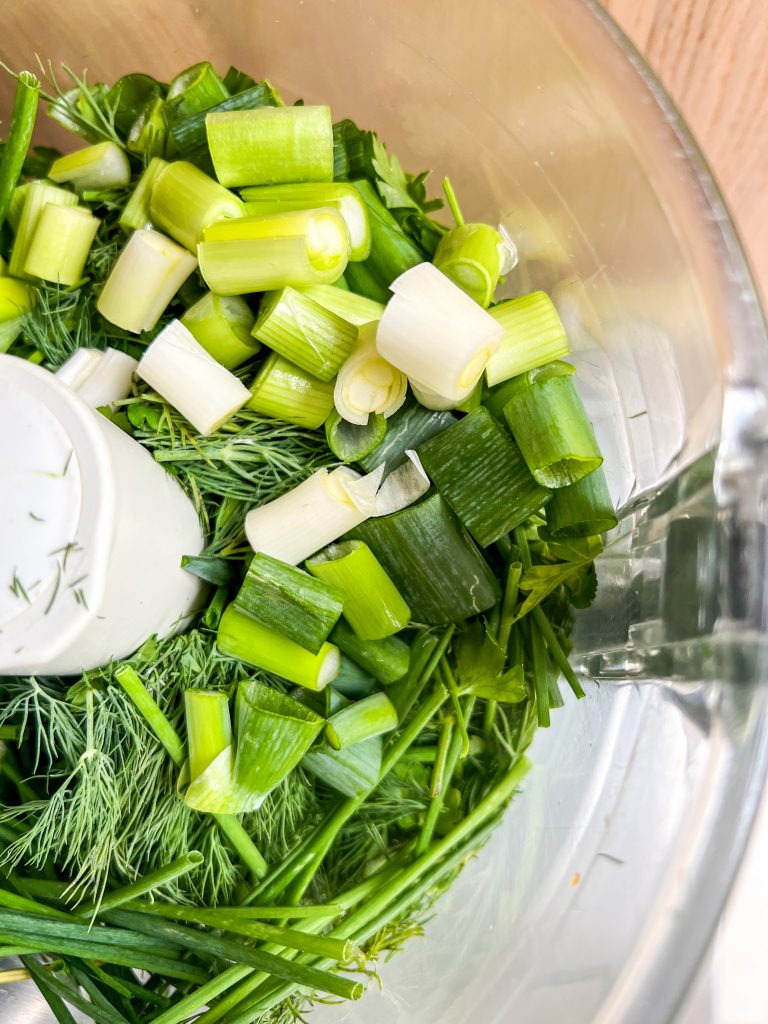
1 Herbs, sp onions 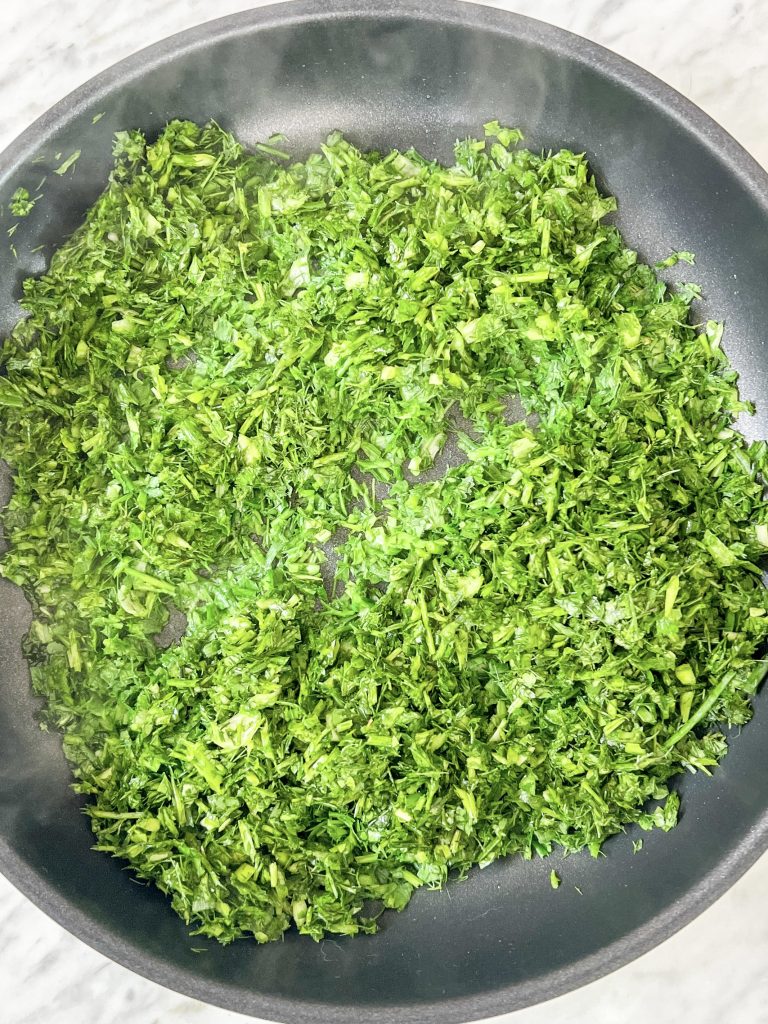
2 Cook 10 mins 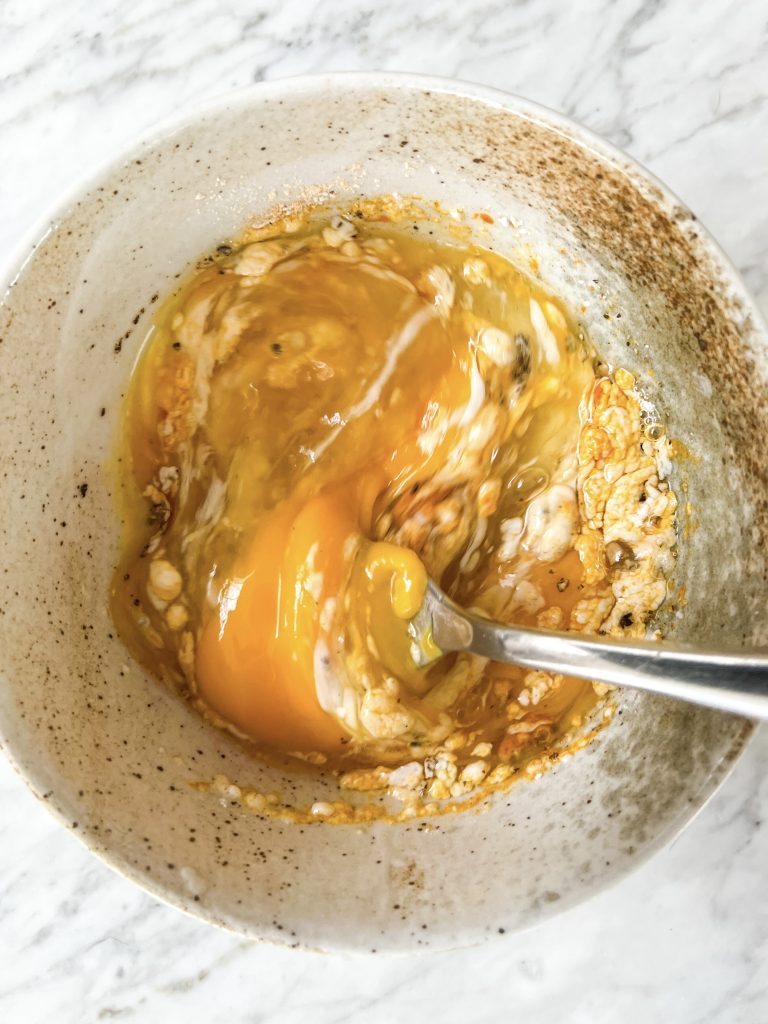
3 Egg mix 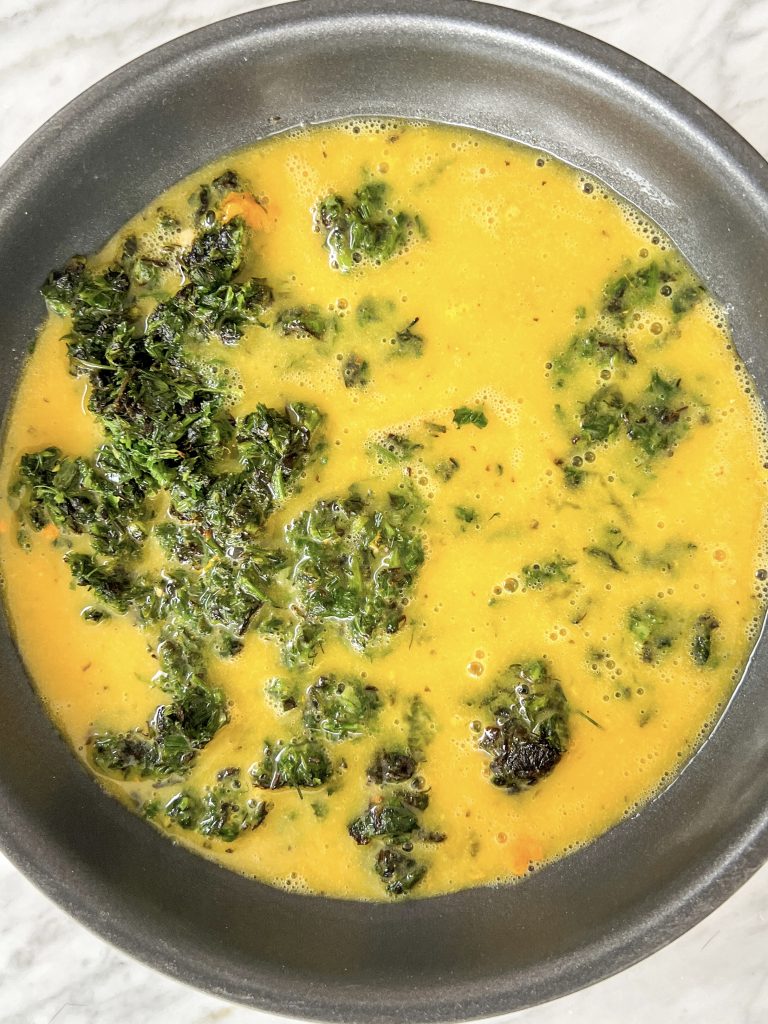
4 Add egg 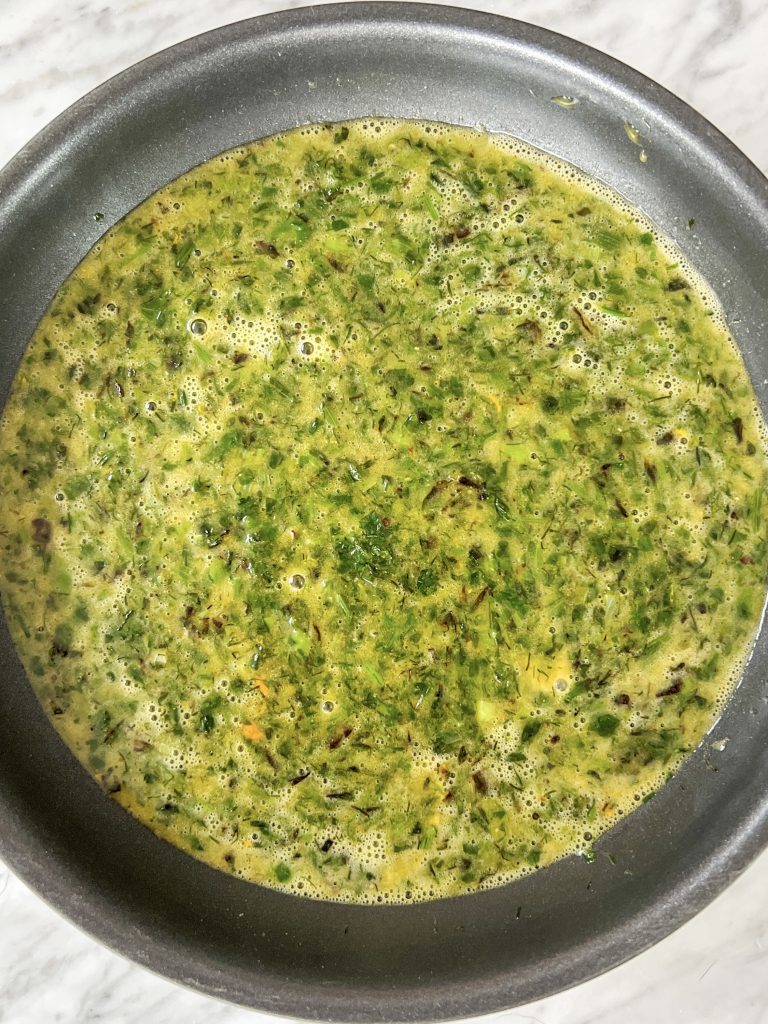
Mix 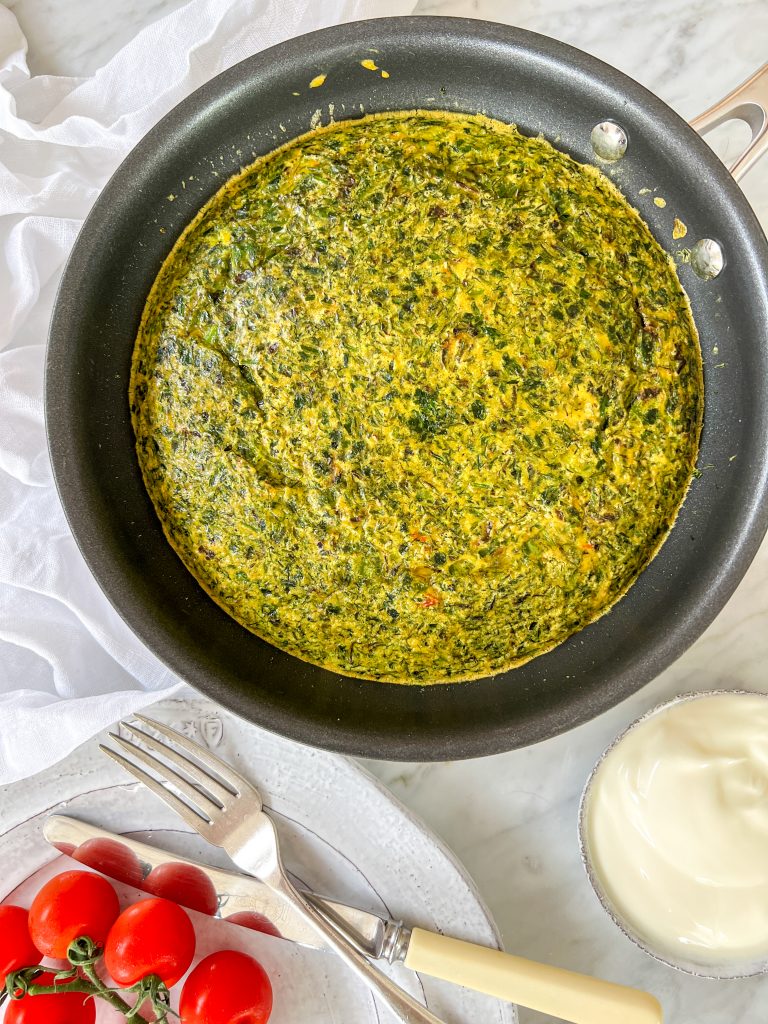
5 Cook and serve
Made this recipe?
If you make this recipe, do please tag me on instagram @daffodil_kitchen. You could also leave a comment in the box directly below the recipe.
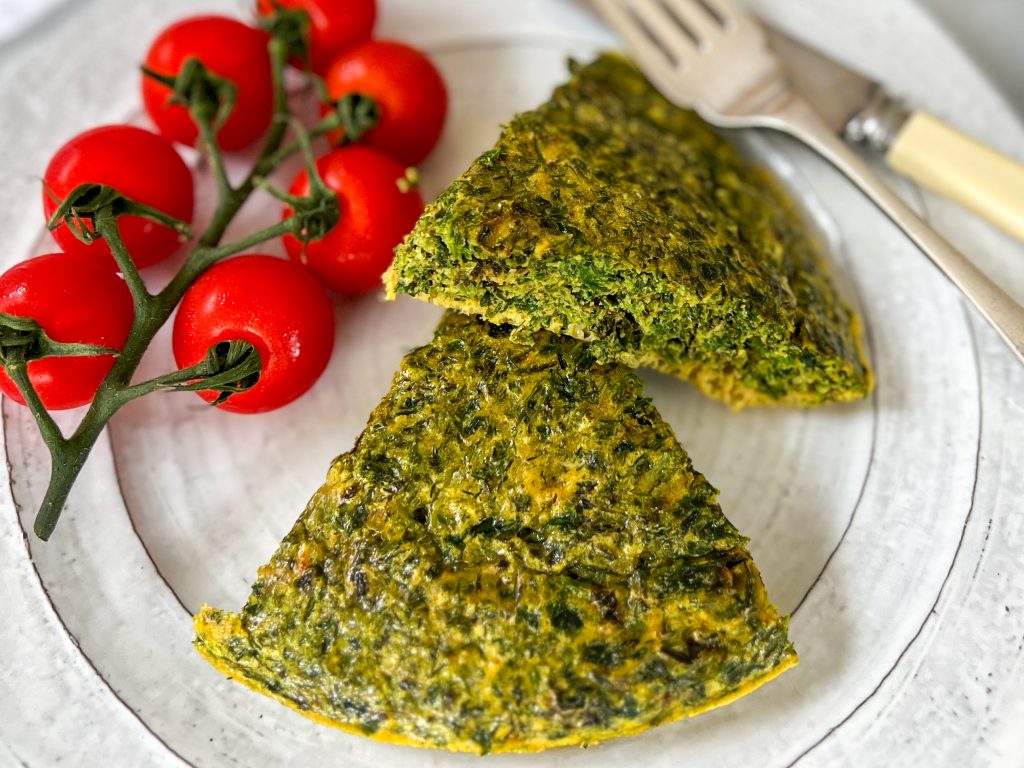
Kuku Sabzi – Persian Herbed Frittata
As the name suggests, a Kuku Sabzi, or Persian Herbed Frittata, is a lusciously light and healthy, oven-baked frittata stuffed full of a selection of fresh green herbs. This classic Persian dish is typically made to celebrate Nowruz, the Persian new year. Based on the spring equinox, it is celebrated today, 21st March, which marks the first day of the Gregorian calendar.
Serves 2
Ingredients
- 1 – 1½ tablespoons olive oil
- 20g fresh dill, roughly chopped
- 20g fresh chives, roughly sliced
- 25g fresh coriander, roughly chopped
- 25g fresh flat-leaf parsley, roughly chopped
- 4 spring onions, trimmed and roughly sliced
- 4 eggs
- 1 tablespoon natural yogurt
- ½ teaspoon baking powder
- ¼ teaspoon ground turmeric
- ⅛ teaspoon fine salt
- ⅛ teaspoon freshly ground black pepper
- 15g dried barberries (optional) or use another tart dried fruit such as sour cherries, cranberries, chopped apricot or goji berries. Ottolenghi suggests adding a couple of teaspoons lime juice
To serve:
- extra Greek/natural yoghurt
- tomatoes
- barberries
Instructions
-
Collect together your equipment (see Recipe Notes below) and ingredients.
-
Preheat oven to 180°C/350°F/Gas 4 (fan 160°C).
-
Prepare the herbs and spring onions and tip them into a food processor. Pulse until finely chopped. Alternatively, finely chop by hand.
-
Heat the oil in a 20cm/8 inch round oven-proof frying pan, over a moderate heat, and add the chopped herbs and onion. Cook for around 10 minutes, stirring from time to time, until the herbs have darkened a little, have reduced in volume and are very lightly slightly caramelised.
-
Whilst you cook the herbs, beat together the eggs with the yoghurt, baking powder, turmeric salt and pepper. Sabrina warns against over-beat the eggs or the batter will be stiff.
-
When the herbs are cooked, pour the egg mixture into the pan. Mix well and place in a preheated oven for 15 – 20 minutes, or until cooked. It is cooked when the eggs have domed and feel soft, but firm, to the touch.Remove from the oven and leave to sit for 5 minutes. Slice and serve hot, warm or at room temperature with some Greek yoghurt on the side.
Recipe Notes
Equipment:
- kitchen scales and measuring spoons
- food processor
- 20cm/8 inch round oven-proof frying pan
Where is this recipe from?
Like most classic recipes, there are a plethora of versions out there. Eggs and fresh herbs, however, are consistent in all the ones I have seen. I found this Sabrina Ghayour recipe on the BBC Good Food website. Sabrina is a multi-award winning British and Iranian chef and food writer who specialises in Persian and Middle Eastern flavours. I regularly make Sabrina’s dishes and this, like her other creations, is simple to make and bursting with flavour. Please see here to read more about Sabrina.
What are barberries?
Dried barberries are a tart dried fruit which are considered a superfood because of their health benefits. They are an excellent source of antioxidants and vitamin C and have been prescribed, over the centuries, to help deal with gut issues. Although quite classic to the recipe, Sabrina suggests they are optional. You can either cook them in the kuku or, I like to serve them alongside. If you cannot find any, you can use another tart dried fruit such as sour cherries, cranberries, chopped apricot or goji berries. Ottolenghi suggests adding a couple of teaspoons lime juice to replace barberries and add that classic sour flavour.

Irish Chicken Fillet Roll
You May Also Like
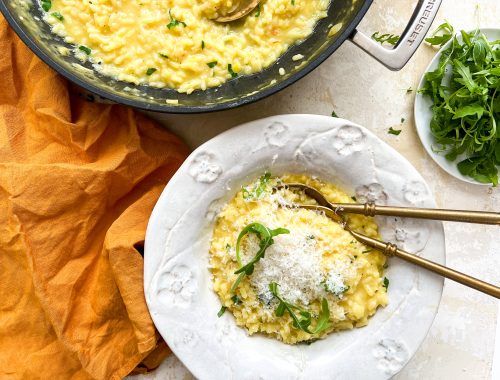
Risotto alla Milanese
31st August 2023
Speculaas
24th December 2021